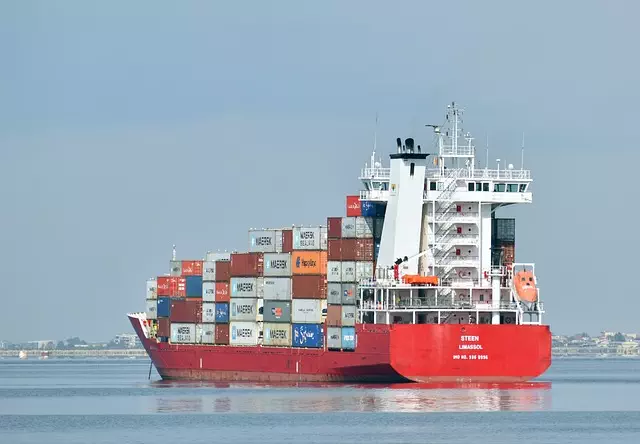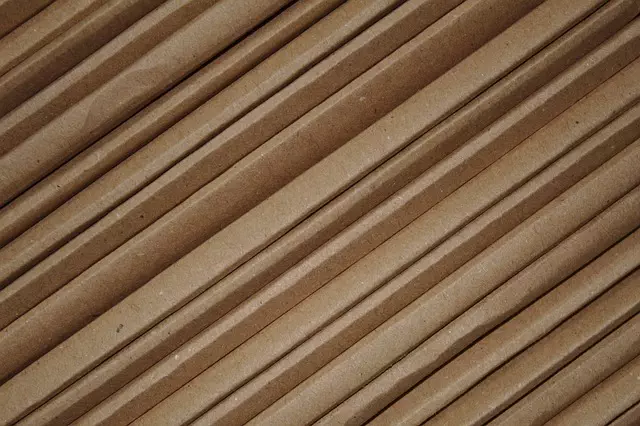Holland, Ohio, has emerged as a green logistics leader, driven by a growing demand for sustainable export packaging solutions. Custom heavy-duty crates designed to minimize waste and damage during international transportation have gained popularity among local businesses. This trend positions Holland as an eco-conscious manufacturing hub, appealing to environmentally conscious consumers and offering competitive advantages globally. By focusing on efficiency, resource utilization, and eco-friendly materials, custom export packaging solutions in Holland reduce environmental impact while ensuring product protection and enhancing business competitiveness.
In Holland, Ohio, the demand for sustainable export packaging solutions is growing as businesses prioritize eco-friendly practices. This article explores how customized heavy-duty crate production can meet these needs while minimizing waste. We delve into effective waste reduction strategies in wood crate manufacturing and present best practices for efficient crate design and construction. Additionally, real-world case studies highlight successful implementations of minimal waste export packaging solutions, offering valuable insights for businesses seeking sustainable alternatives.
- Understanding the Demand for Sustainable Export Packaging in Holland, Ohio
- The Benefits of Customized Heavy-Duty Crate Production
- Waste Reduction Strategies in Wood Crate Manufacturing
- Best Practices for Efficient Crate Design and Construction
- Case Studies: Successful Implementation of Minimal Waste Packaging Solutions
Understanding the Demand for Sustainable Export Packaging in Holland, Ohio
In Holland, Ohio, there’s a growing demand for sustainable export packaging solutions, driven by a conscious shift towards eco-friendly practices among businesses. The city’s thriving manufacturing sector, known for its robust exports, recognizes the need to balance economic growth with environmental stewardship. Custom export packaging, designed to meet specific product requirements, has become increasingly popular. Businesses seek heavy-duty options that can withstand the rigors of international transportation while minimizing waste and environmental impact. This demand reflects a broader trend in the region towards innovative, sustainable solutions for global shipping needs.
Holland’s business community understands that adopting eco-friendly export packaging is not just about regulatory compliance but also about building a positive brand image and appealing to environmentally conscious consumers. The city’s proactive approach to promoting sustainable practices positions it as a leader in green logistics, offering local businesses competitive advantages in the global market while ensuring a healthier planet for future generations.
The Benefits of Customized Heavy-Duty Crate Production
Customized heavy-duty crate production offers significant advantages for businesses involved in export packaging solutions in Holland, Ohio, and beyond. By designing crates to exact specifications, companies can ensure that their goods are protected during transportation, reducing the risk of damage and costly returns. This tailored approach allows for the creation of robust, specialized containers that cater to unique product shapes, sizes, and weights, providing an ideal fit that standard off-the-shelf options often cannot match.
Moreover, custom production enables businesses to minimize waste and maximize resource efficiency. Through precise design and material selection, manufacturers can utilize less wood, optimizing scrap reduction and contributing to a greener environment. This method also facilitates the use of sustainable materials, further enhancing the eco-friendly credentials of export packaging solutions in Holland, Ohio. By embracing customized heavy-duty crate production, businesses can stand out as responsible stewards of resources while ensuring their products reach international markets safely and securely.
Waste Reduction Strategies in Wood Crate Manufacturing
In the wood crate manufacturing sector, minimizing waste has become a top priority for many businesses, especially those specializing in custom export packaging solutions in Holland, Ohio. Traditional production methods often leave significant amounts of material unused, contributing to environmental concerns. However, with innovative waste reduction strategies, manufacturers can create efficient and sustainable processes. One approach involves optimizing cutting patterns to utilize every piece of wood, reducing scrap material by up to 30%. Customization is another key factor; crafting heavy-duty export packaging tailored to specific product dimensions ensures minimal excess material, making it an eco-friendly game-changer for industries requiring robust protection during transit.
By implementing these strategies, companies can offer not only high-quality custom export packaging but also contribute to a greener environment. This shift towards sustainability is particularly important for businesses aiming to stand out in the market and appeal to environmentally conscious consumers. Moreover, efficient waste management practices can lead to cost savings for manufacturers, making them more competitive in the industry while promoting a responsible business image.
Best Practices for Efficient Crate Design and Construction
In the realm of export packaging solutions, Holland, Ohio, stands out as a hub for innovative and sustainable practices. When designing and constructing wooden crates, efficiency is key to minimizing waste and maximizing resource utilization. Custom export packaging tailored to specific product requirements ensures that no space goes unused, reducing material consumption. Every dimension, from crate size to the choice of wood, should be optimized based on the items being shipped—whether heavy-duty or delicate goods.
Using advanced technologies like computer-aided design (CAD) software allows for precise measurements and precise cutting, eliminating scrap materials. Additionally, employing sustainable sourcing practices by opting for recycled or certified wood materials contributes to a greener approach. The result is not only cost-effective but also environmentally friendly, aligning with the growing demand for eco-conscious export packaging solutions.
Case Studies: Successful Implementation of Minimal Waste Packaging Solutions
Many companies in the export industry have successfully adopted minimal waste packaging solutions, leading to significant environmental and economic benefits. One notable example is a manufacturing plant in Holland, Ohio, that produces heavy-duty export packaging for delicate and bulky items alike. By implementing custom export packaging designs, they’ve reduced their carbon footprint and minimized material usage while maintaining product integrity.
This shift towards sustainable practices has not only helped the company meet environmental regulations but also gained them recognition as an eco-conscious leader in the industry. Their innovative approach involves utilizing recycled and recyclable materials for crate construction, ensuring that products travel efficiently from point A to B without compromising on protection or quality.


